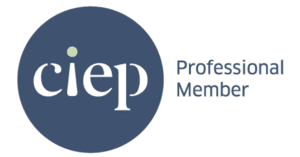Self-help and self-improvement publications are steadily gaining popularity. Still, when writing a book in this genre, the authors must be mindful of providing advice. Their goal should be creating a support system that will not harm the reader. Simply put, their words will impact your readers, so you must be careful how you use them. So, to write a self-help book that actually helps, it is crucial to give safe and precise advice. Another essential element of an effective self-help publication is the lack of assumptions about the readers and their needs. (In other words, keep it specific and do nor oversimplify.) Finally, remember to use universal language to ensure your self-help book remains timeless and relevant.
In principle, self-help authors must be well-meaning people since they share their recipe for tackling a specific problem. (And by no means do I doubt their intentions.) But, in practice, good intentions must pair with sensible language on the pages of a self-help book. In other words, the authors must express their ideas clearly, but above all, their words must not be harmful. They must not make assumptions and judgements about the readers or perpetuate prejudice or stereotypes. (If you want to learn more about how words can be used to harm or heal, I recommend this blog by Radical Copyeditor.)
Give safe and supported advice
A successful self-help book is backed by credible and relatable life experiences. And meticulous research. The high-level idea of overcoming a struggle may be based on your personal experience. But you should support your recommendations on how to recreate this success with trustworthy sources that are easy to validate.
This is especially relevant if your book touches upon diet, physical activity or health conditions. For instance, when you say, ‘Eating once a day helped me to bring my weight under control,’ do you want to promote eating disorders? No. You do not want to give advice that may be misinterpreted as encouraging an unhealthy lifestyle or is otherwise harmful. Even if a particular exercise, diet or lifestyle change worked for you, you must be careful how you convey it. Ideally, do not share advice you are not qualified to give or lacks backing from verifiable research. The same goes for advice that may have a detrimental effect on your readers’ health.
Don’t oversimplify, assume or judge
Unavoidably, self-help literature has an element of didacticism. Ultimately, the author teaches the readers how to improve a target area of their life. In doing so, the author should assume the role of an understanding and non-judgemental teacher we all would want. When you offer your readers advice based on overgeneralization or stereotypes, you deny them their individuality, identity and voice.
For instance, encouraging men to focus on their careers by saying ‘women like successful men’ may imply several assumptions about women (e.g. all women are heterosexual and all women only seek partners who achieved success in their professional lives) and men (e.g. all men are heterosexual and all men only seek partners who are attracted to them only if they have successful careers). While some consenting adults might find themselves in such relationships, your words should not be the gospel speaking on behalf of the entire planet.
Use timeless language
Preparing to write a self-help book involves researching the target audience, including the language they will find relatable and authentic. Language that overuses trending phrases or slang will not age well, even if it may appeal to a particular demographic at the time of writing.
Book publishing is a highly competitive industry. Thus, even impactful (and well-written) books may sell poorly, even more so those that appear dated. Make sure it is your message that creates the hype and how you express it is efficient and correct.
To this end, consider working with an editor. An experienced line editor will help you work with phrasing or content that may be considered sensitive and should be conveyed accurately and respectfully. They may also flag phrases and sentences that reveal bias and diagnose vocabulary that may be unappealing to your reader.
Conclusion
And that’s all from me. These were my two cents on improving the self-improvement books. If you want to learn more about line editing services or need help tightening your self-help manuscript, contact me for a free sample edit (and remember to use my early bird discount). If you want to hear more from me, including self-editing and writing tips, follow me on Mastodon, Twitter, Facebook and LinkedIn or join my newsletter.


